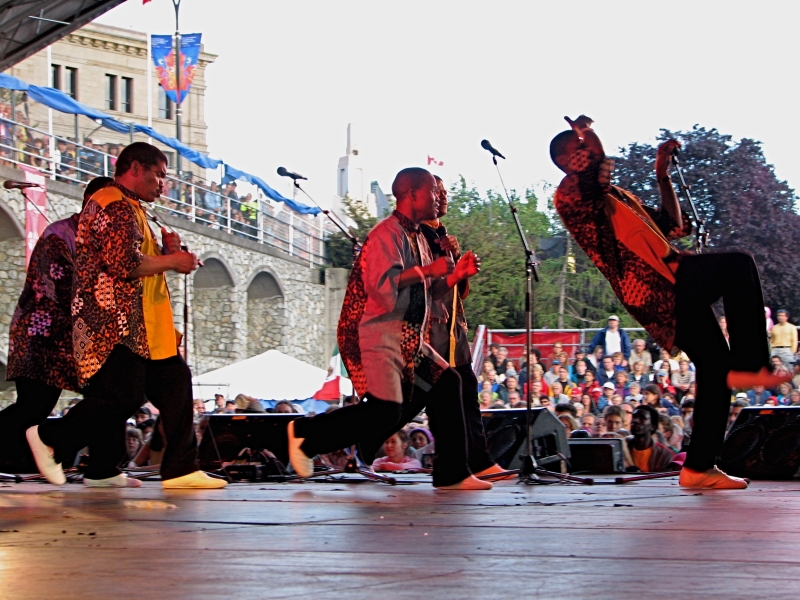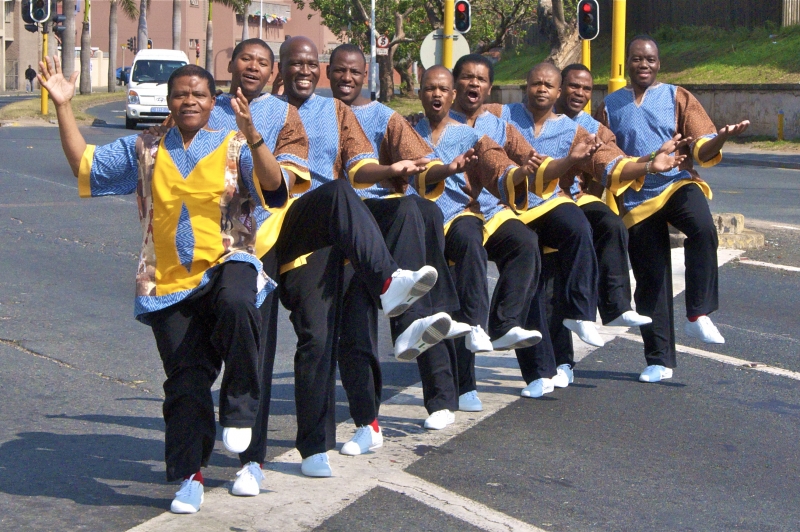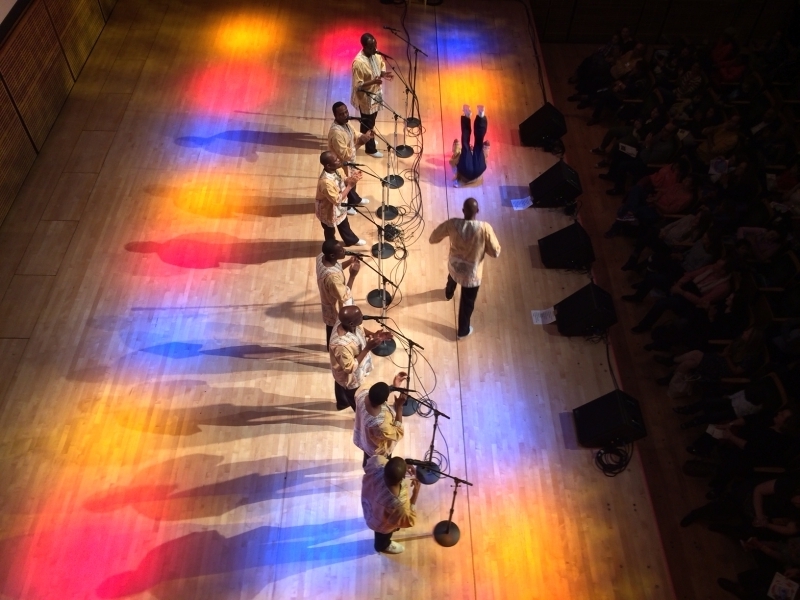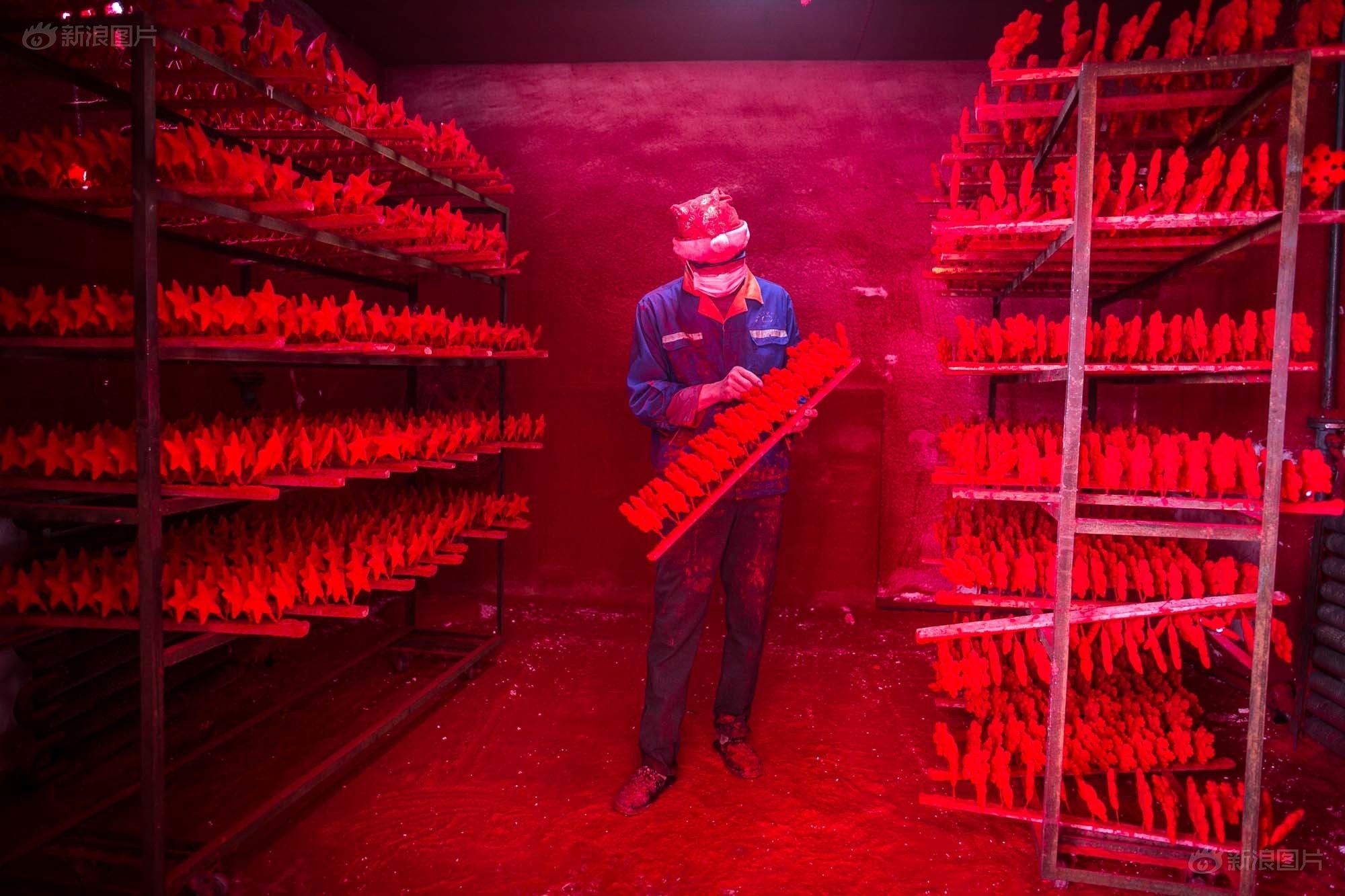There are many roads to worldwide renown, but few of them involve being discovered by a 60s musical icon and championed by a Nobel Prize winner. That, in a nutshell, is the story of Ladysmith Black Mambazo, an a cappella vocal group whose roots lie in the farmlands of South Africa.
But that summary only scratches the surface of an astonishing tale that has its beginnings in the apartheid era, when the SA government ferociously pursued a policy of keeping whites and blacks separate. It all started, so the legend goes, when founder Joseph Shabalala had a dream. A dream of voices singing in harmony. Inspired by Zulu music, in particular isicathamiya, Shabalala formed an all-male ensemble that would go on to outperform all others. So powerful was the group’s sound that they were banned from competing in singing contests – they were just so much better than everyone else.
At the heart of Ladysmith Black Mambazo’s raison d’etre was a desire to promote the beauty of South African culture. The group’s big break came when they were featured on Paul Simon’s album Graceland, a hugely successful record that thrust them into the global spotlight – and they haven’t let up since.
“When we first became known outside of South Africa, after singing with Paul Simon in 1986, we began to travel the world singing to so many people. We thought that we would do this for about five years, maybe a little longer. However, it’s been almost 30 years and we continue to travel the world seven months of the year singing about South Africa, singing our cultural history to thousands and thousands of people,” says Albert Mazibuko, one of the group’s original members and cousin to Shabalala. “After all these years we meet so many people who return to our concerts year after year because they feel the love we sing about. We know our mission to spread South African culture has been felt and we are very proud for this.”

While Graceland was a commercial hit, it also attracted controversy. Critics claimed Simon had pilfered South African heritage for monetary benefit. At a time when racial segregation was still going strong, some people were affronted at this white American and what they perceived as his cultural colonialism. At the same time, it was clear that appearing on Graceland had opened many doors for Ladysmith Black Mambazo, who went on to stage shows all over the world and work with artists such as Michael Jackson and Dolly Parton, two of Mazibuko’s favorite collaborations.
The singers’ proudest achievement, however, was when they were asked by Nelson Mandela personally to accompany him to accept his Nobel Peace Prize in 1993. “All South Africans looked to Mandela for guidance as we went from a pariah nation to a nation of freedom. Ninety percent of our people were not free because of the apartheid policies so, of course, when Mandela was freed, we knew our lives would be changing for the better. Then, Nelson Mandela was awarded the Nobel Peace Prize in 1993. It was such an important moment for South Africa,” recalls Mazibuko.
“We had been told that our group was one of Mandela’s favorite groups to listen to when he was in prison. After the Nobel Peace Prize was announced, Mandela contacted us to say he wanted Ladysmith Black Mambazo to join him on his trip to Oslo so we could sing for the people there. This was an amazing moment for us. Nelson Mandela was going to receive the Nobel Peace Prize and he wanted us to go with him and represent South Africa. Of course we went and it was the most amazing moment in our career. We are so thankful we were allowed to have that moment.”

Ladysmith Black Mambazo went on to perform at Mandela’s inauguration in 1994. Despite their long-standing association with politics, however, Mazibuko describes the group as “apolitical.”
“We believe people should unite to create a better world for themselves. We believe all politicians should be working to help the people. But we don’t align ourselves with politics or political parties,” he says. “We don’t want to choose sides. We say all sides need to come together and help the people. This is what we have always been singing about and what we will continue to do. We think this is, indeed, essential to who we are and what our mission is.”
Though the lineup has changed over the last five decades, it has remained a largely family affair, with members drawn from Shabalala’s kin. That tradition is very important to the ensemble, in order to ensure the continuation of its original goals. Shabalala trained his sons from early childhood in his art, instilling in them a pride for Ladysmith Black Mambazo’s history and ethos – they joined the group in 1993. “In fact, we now have our first grandson in the group, the third generation of Ladysmith Black Mambazo,” notes Mazibuko. “This ensures that Joseph Shabalala’s dream will continue for decades to come.”

With three Grammy wins and 15 nominations, in addition to a slew of other awards, Ladysmith Black Mambazo has certainly seen their fair share of success. The group’s output has continued steadily throughout the decades, and they still release albums every year or two, as well as working with artists in a variety of genres. Most recently, they were featured alongside duo Nico & Vinz on a track by French mega producer David Guetta, giving their sound an electro beat.
“David Guetta’s music is, indeed, very different from what we are normally asked to sing with, but that is what is so wonderful about music, many styles coming together to create something beautiful. As long as it makes the people happy, we’re all for it,” remarks Mazibuko.
Ladysmith Black Mambazo spends more than half the year on the road, as they continue to share their music with audiences on every continent. Yet, despite the fact that Shabalala is now in his 70s and Mazibuko in his late 60s, they have no intention of easing up.
“It can be exhausting, but this is what our mission has been and will continue to be as long as people want to hear us. We’re very fortunate to have our opportunity, as many music groups come and go fast, but we’ve been singing for South Africans since 1964 and the whole world since 1986. If we slow down then people might stop caring. If they stop caring about us then they will care less about South Africa. We must continue our mission of spreading the culture and love of South Africa.”
// Ladysmith Black Mambazo are performing on August 10, 8pm, RMB80-480. Guangzhou Opera House.






















0 User Comments